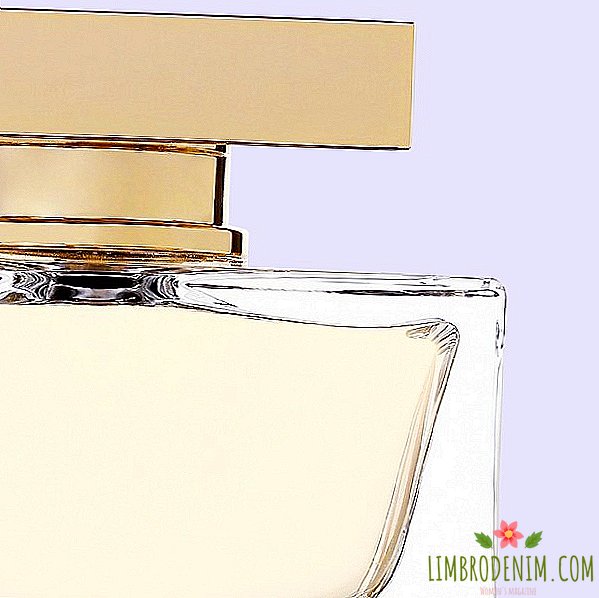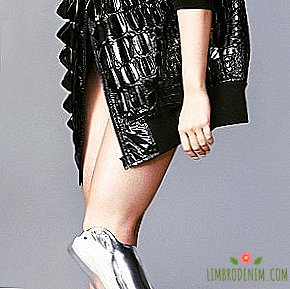Be brave: Why slogans on clothes sell so well
"IN THE COLLECTION OF SPRING-SUMMER - 2018 Dior released a new Feminist T-shirt "- this is how the glossy press from Vogue.com to Grazia commemorated the show at home during the last Paris Fashion Week. This obviously implies a reference to a t-shirt with the words" We should all be feminists "- the absolute hit of the debut collection of Maria Grazie Curie post creative director Dior, shown six months ago.
Following in more critical editions and popular instagram accounts came another kind of review - for example, the authors of the channel Everyoutfitonsatc limited themselves to laconic: "With horror, we see crowds of fashion bloggers and influenza fans who will wear this ..." Speech, in particular, about striped longslives with slogans "Why Have There Been No Great Women Artists?" This phrase is the title of an essay by art historian Linda Nochlin of 1971, where she talks about the prejudices and barriers women face in the art industry.

It is not surprising that Dior, who closely followed the pop cultural context, placed on the t-shirts a heading of a key manifesto for feminist art. The problem is that, being taken out of context, the phrase "Why have there been no great women artists?" at least absolutely depreciates, and how the maximum can be interpreted incorrectly.
Sweatshirts and T-shirts with slogans, logos or simply inscriptions that do not carry much meaning, again began to actively appear on the catwalks about four years ago. Over time, a rare brand did not guess to include in its assortment a couple of things with some statement: from Prabal Gurung with their "The future is female" and Dior with a quote from the famous speech of the Nigerian writer Chimamanda Ngozi Adichi "We should all be feminists" to long Monk with the phrase "Be brave" (in this way, Cyrillic) on the sleeves. Vetements released a capsular collection of T-shirts with the words "Staff" at affordable prices, Gucci in the latest cruise collection showed things with the ironically "forged" Guccy logo, and Topshop made shirts with a mysterious print "1972" in the spirit of Soviet constructivism, without accompanying them, however, Explanatory note why this date was chosen.
Smaller industry players also quickly realized what was happening, and put the release of things with slogans and inscriptions to the stream: from Walk of Shame with the notorious Wolf of Seim to St. Petersburg brand Asya Malbershtein, which, in addition to minimalist bags and backpacks, began to produce T-shirts " Burn away sin, "Volchok Moscow brand and their scarves with quotations from the songs of the Dolphin and Ksenia Sobchak's freshly launched collaboration with the Terekhov Girl (sweaters" St. Petersburg swindler "and" Queen of the scandal ", Extrabich caps, etc.). For some designers, the decision to work in this segment was a lucky ticket at all - remember the Ukrainian Anna Kolomoets, better known as Anna K, who got into the Colette show-windows precisely because of her “Fashion circus” T-shirts, and then she made another batch of “Tissue” give interviews "especially for the trendy department store.
T-shirts and other basic things, lavishly decorated with inscriptions of all stripes, are the marketing point at which the supply and demand curves successfully converged. For consumers, this is an opportunity to tell a funny (in fact, far from always) joke, without saying a word, telling everyone around them about their sparkling sense of humor, or just the opportunity to feel involved in a certain circle - whether we are talking about feminism or opposition to Trump.


For brands, it is the most profitable product: it is simple and fast in production, it does not need to develop special patterns, it has a low cost with a high circulation, so you can put a high mark on it. To sell such a thing as nothing to do - the same Dior T-shirts "We should all be feminists" scattered like hot cakes in the first couple of days of pre-sale. Not even scared off by the cost of $ 710, giving rise to jokes in the spirit of "I can not afford to be a feminist."
Add to this the fact that for the last couple of years the fashion industry has increasingly moved towards simplification: the original design gives way to simple silhouettes and streetwear, and shop buyers do not want to take risks and spend most of their budgets on basic things that will definitely pay off. And consumers themselves more often prefer to lower money not on material things, but on impressions and emotions. By the way, the last item “talking” clothes are also quite responsible: add the inscription “Russian Renaissance” to a simple white T-shirt, as it immediately acquires a web of meanings and becomes not just a soulless piece of clothing, but a thing in context.
The problem is that replicating the very idea of printing something on things that should carry a weighty message led to a blurring of the idea. Now it’s as if it’s not so important whether you are a supporter of feminism, buying a T-shirt with an unequivocal slogan. And, in general, it makes no difference whether you feel any nostalgia for the early work of the Mumiy Troll group when you buy the Gosha Rubchinsky collaboration sweatshirt dedicated to her “Morskaya” album. Foreign bloggers and simply fans of Vetements probably don’t know what is hidden behind the mysterious inscription “Zemfira”, derived from Latin and Cyrillic on the sweatshirt they bought, but they don’t need it.
Both T-shirts of status brands and knitted creations of small local brands pursue a common goal - to sell as many people as possible the opportunity to touch a massive HYIP. It is fair to say that this principle is not new: in 1969-1979, Vivienne Westwood and Malcolm McLaren invented (they actually looked at the London designer Tommy Roberts) to make T-shirts with the names of popular underground groups and lists of favorite / unloved things and earn money This money (Maclaren, as you know, generally was a marketer from God).


A little later, the idea picked up by other designers. For example, in the 1980s, Catherine Hamnett became known, among other things, for her T-shirts with the words "Choose life" and "Use a condom" (a reaction to the growing AIDS epidemic) and loud political statements (in 1984 Hamnett came to a meeting for Margaret Thatcher in a t-shirt "58% Don't want Pershing", hinting at the protest of the British people against the deployment of the American Pershing-2 nuclear missiles in the country). In the 1980s and 1990s, Franco Moschino also experimented with inscriptions on clothing - starting with minimalist knit dresses "And don't you take me out" and ending with the famous jacket with a word-based phrase "Waist of money" around the belt.
The subtle irony of Hamnett and Moschino remained part of the visual aesthetics of designers, whose fans naturally wanted to show their solidarity with the authors' mindsets - the current situation is much more pragmatic. No one has the right to prohibit a person to wear pro-feminist T-shirts, if he likes the Dior brand or the phrase is pretty - however, outside the necessary context, it finally loses its meaning in favor of a good PR move. Do you know where the phrase "May the bridges I burn light the way" came from on the super popular hooves Vetements (in one of these, Whoopi Goldberg appeared in the program "The View")? She belongs to one of the heroes of the Beverly Hills 90210 TV series, Dylan MacKay, who he says after his friend Brandon Walsh asks for permission to help him get out of drug addiction. It is curious that in the future this phrase became so popular that it even decorated matchboxes.
As a conclusion, I would like to recall one story. Anyone who is familiar with the works of the Sex Pistols, remembers Johnny Rotten and his favorite t-shirt "I hate Pink Floyd" - in fact, thanks to her, he got into the group. Thirty-five years later, Rotten admitted that, in fact, he always liked Pink Floyd's work, he would have liked to perform with them on the same stage, and wore a t-shirt just like that. Of course, sometimes words are just words; the only difference is that it is these words that broadcast a not very funny joke in the spirit of "I don't speak Italian but I speak Moschino" or one of the most important feminist art manifestos. Perhaps the designers began to play with the conjuncture. Because, frankly, the smiling blogger of street-style photographers, the fashion blogger in the "Fuck terror" T-shirt looks a bit ridiculous.
Photo:Monki, Mille, Net-A-Porter, Walk of Shame, C.O.X.





